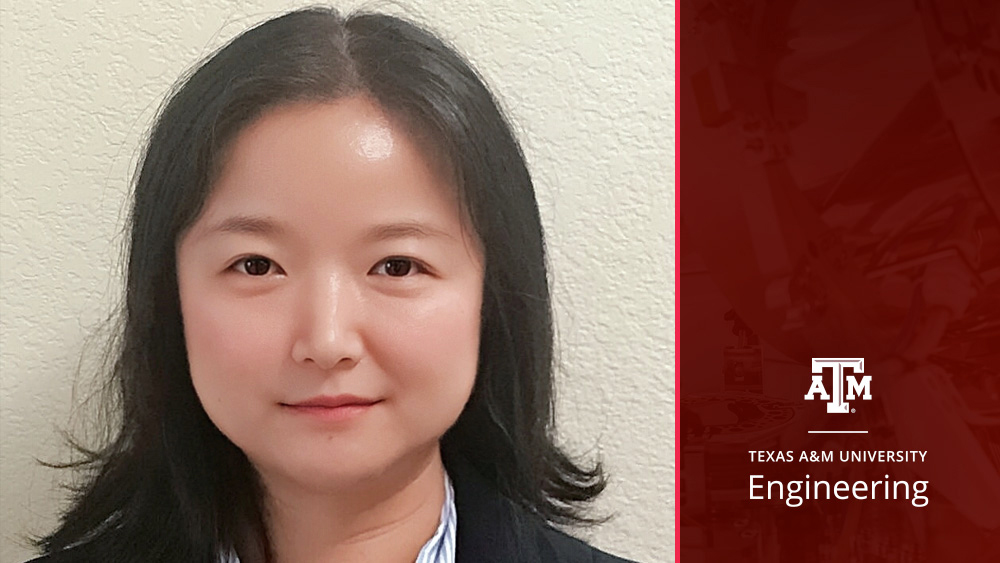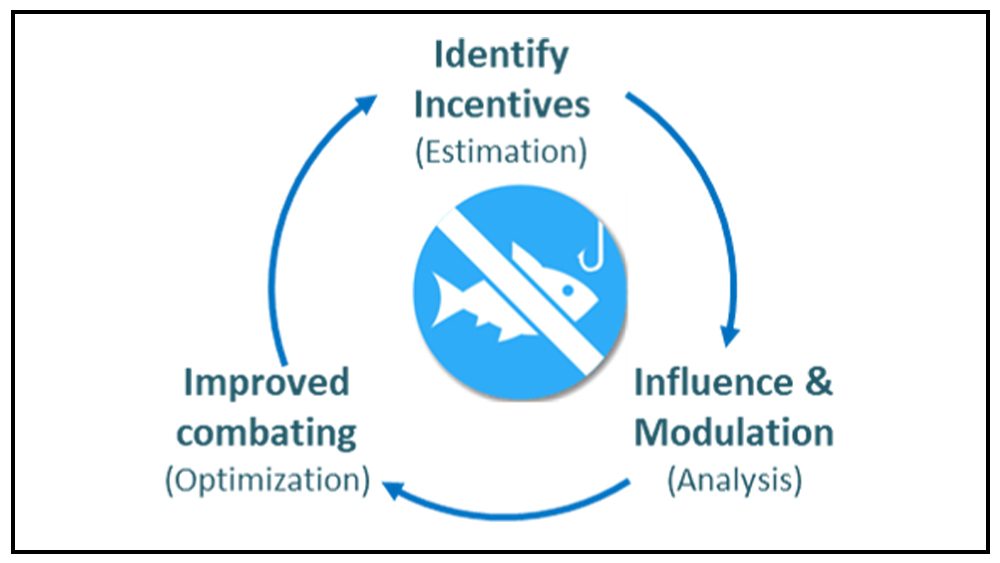
Dr. Yanling Chang is a dedicated researcher working to find innovative solutions to making education more accessible to all learners based on their environment and enhancing their learning outcomes through various approaches. |
Image: Courtesy of Dr. Yanling Chang
Dr. Yanling Chang, an assistant professor in the Department of Engineering Technology and Industrial Distribution at Texas A&M University, recently received the Faculty Early Career Development (CAREER) Award from the National Science Foundation.
The CAREER award is one of the most prestigious honors for emerging researchers that aims to support promising integrated research and education initiatives.
Chang intends to apply the CAREER award to develop an innovative methodological framework that integrates structural estimation, optimization and integrated analysis techniques to address seafood supply chain issues.
With the U.S. ranking as one of the largest seafood consumers in the world, U.S. fishery agencies are seeking management practice reforms to improve the population dynamics of fishery resources — an area where fish are caught for commercial or recreational purposes — in open ocean fishing.
The effectiveness of management strategies for fishery resources heavily relies on the accuracy of fish stock assessments, which are frequently hindered by various sources of uncertainty and incomplete information.
Additionally, illegal, unreported and unregulated (IUU) fishing contributes to the challenges faced by the industry by stealing natural resources, leading to harmful impacts on ocean ecosystems and endangering the seafood supply chain.
The CAREER award is one of the most prestigious honors for emerging researchers that aims to support promising integrated research and education initiatives.
Chang intends to apply the CAREER award to develop an innovative methodological framework that integrates structural estimation, optimization and integrated analysis techniques to address seafood supply chain issues.
With the U.S. ranking as one of the largest seafood consumers in the world, U.S. fishery agencies are seeking management practice reforms to improve the population dynamics of fishery resources — an area where fish are caught for commercial or recreational purposes — in open ocean fishing.
The effectiveness of management strategies for fishery resources heavily relies on the accuracy of fish stock assessments, which are frequently hindered by various sources of uncertainty and incomplete information.
Additionally, illegal, unreported and unregulated (IUU) fishing contributes to the challenges faced by the industry by stealing natural resources, leading to harmful impacts on ocean ecosystems and endangering the seafood supply chain.

The accuracy of fish stock assessment is an essential aspect in determining the effectiveness of management strategies for fishery resources, but it is often impeded by various sources of imperfect information. |
Image: Courtesy of Dr. Yanling Chang
While Chang’s research primarily aims to explore sustainable and practical strategies for managing the population dynamics of fishery resources and to disrupt IUU fishing in situations where information is imperfect, the process to achieve these objectives is equally significant.
Chang explained, “The main methodological idea is to develop estimation, character learning and optimization, and the integrated analysis framework to analyze the objective of a human agent from their implemented action history. Based on the available data, we can optimize and find the optimum surveillance strategy to improve the seafood system.”
One approach to overcoming these challenges is understanding how students learn and adapting teaching methods to their unique learning styles to improve their evaluation skills.
Amid the pandemic, Chang observed an increase in online teaching and the development of high-quality online teaching resources and proposed that using online education to complement in-person teaching may be more effective for different learners to promote equity, diversity and accessibility.
"We want to tailor our educational strategy to fulfill students' needs based on their preferences rather than imposing a specific way of learning on them," Chang said.
To achieve this, Chang suggests an integrated educational research framework that evaluates students' preferences for online or in-person teaching and adapts educational strategies to meet their specific needs.
This framework aims to make education more accessible to all learners based on their environment and enhance their learning outcomes to improve a student's ability to make assessments based on various sources of uncertainty and incomplete information.
Chang aspires to develop a personalized teaching approach that caters to the individual needs of each student. By doing so, Chang intends to improve the efficiency and effectiveness of the student's ability to conduct assessments, which may have a positive impact on the sustainability of fishery resources.
Chang explained, “The main methodological idea is to develop estimation, character learning and optimization, and the integrated analysis framework to analyze the objective of a human agent from their implemented action history. Based on the available data, we can optimize and find the optimum surveillance strategy to improve the seafood system.”
One approach to overcoming these challenges is understanding how students learn and adapting teaching methods to their unique learning styles to improve their evaluation skills.
Amid the pandemic, Chang observed an increase in online teaching and the development of high-quality online teaching resources and proposed that using online education to complement in-person teaching may be more effective for different learners to promote equity, diversity and accessibility.
"We want to tailor our educational strategy to fulfill students' needs based on their preferences rather than imposing a specific way of learning on them," Chang said.
To achieve this, Chang suggests an integrated educational research framework that evaluates students' preferences for online or in-person teaching and adapts educational strategies to meet their specific needs.
This framework aims to make education more accessible to all learners based on their environment and enhance their learning outcomes to improve a student's ability to make assessments based on various sources of uncertainty and incomplete information.
Chang aspires to develop a personalized teaching approach that caters to the individual needs of each student. By doing so, Chang intends to improve the efficiency and effectiveness of the student's ability to conduct assessments, which may have a positive impact on the sustainability of fishery resources.